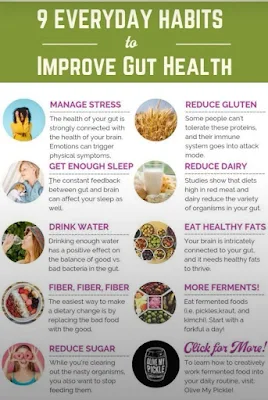Plant-Based Diet in 2024: Top Health Benefits & Eco Impact
Discover the top health benefits and eco impact of a plant-based diet in 2024. Learn how adopting this lifestyle can enhance your well-being and benefit the planet.
Author: Anu John
Key Takeaways:
Reduces risk of heart disease and diabetes.
Lowers greenhouse gas emissions significantly.
Improves digestion with high fiber intake.
Encourages sustainable food production.
Promotes ethical treatment of animals.
Introduction
In 2024, the trend toward plant-based eating has grown stronger than ever before. This is fueled by a combination of health-conscious consumers and the increasing environmental challenges facing our planet.In this article, we will explore the top health benefits of adopting a plant-based diet and delve into its positive environmental impact. By the end, you’ll not only understand why this diet is gaining momentum but also how you can benefit from making the switch yourself.
What Exactly Is a Plant-Based Diet?
1. Vegetables
2. Fruits
3. Whole grains
4. Nuts and seeds
5. Legumes (beans, lentils, peas)
Unlike strict veganism, a plant-based diet allow for small amounts of animal products, such as dairy or eggs, but it emphasizes minimizing these in favor of plant-rich meals. The key is flexibility—this approach suits a wide range of lifestyles, making it accessible for everyone.
Why is this important in 2024? As people become more aware of the connections between food choices, health, and the environment, plant-based diets offer a practical way to make a meaningful impact.
Top 5 Health Benefits of a Plant-Based Diet in 2024
1. Lower Risk of Heart Disease
A significant benefit of a plant-based diet is the profound impact on heart health In fact, the Journal of the American Heart Association found that individuals following a predominantly plant-based diet had a 16% lower risk of heart disease compared to those consuming more animal-based products.Why does this happen?
High fiber content: Whole grains, fruits, and vegetables contain soluble fiber, which helps lower cholesterol levels.Antioxidants: Plant-based foods, particularly leafy greens and berries, are rich in antioxidants that combat inflammation, a major contributor to heart disease.
Healthy fats: Nuts, seeds, and avocados provide heart-healthy fats, particularly omega-3 fatty acids, which support cardiovascular function.
Real-Life Example:
Consider the case of the Mediterranean diet, which is largely plant-based and widely recognized for its heart health benefits. People in Mediterranean regions, who consume a diet high in vegetables, whole grains, and healthy fats, have among the lowest rates of heart disease globally.2. Prevention of Type 2 Diabetes
Another major benefit of plant-based eating is the reduction in the risk of type 2 diabetesHow does a plant-based diet prevent diabetes?
Improved insulin sensitivity: High-fiber foods, such as legumes and whole grains, help regulate blood sugar levels.Weight management: A plant-based diet supports weight loss and reduces body fat, lowering the risk factors for diabetes.
By focusing on nutrient-dense, high-fiber foods, a plant-based diet can help maintain steady blood sugar levels, keeping diabetes at bay.
3. Effective Weight Management
In a world where obesity remains a global health crisis, plant-based diets offer a sustainable solution for weight management. Since plant-based foods tend to be lower in calories but high in fiber, they promote satiety and reduce the likelihood of overeating.Why this matters:
Low-calorie density: Vegetables, fruits, and whole grains provide essential nutrients without excess calories.Appetite control: The high fiber content of these foods helps you feel full for longer, reducing the temptation to snack.
A 2020 review in the American Journal of Clinical Nutrition showed that those on plant-based diets had significantly lower body mass indices (BMIs) compared to meat-eaters, reducing the risk of obesity and related diseases.
Weight loss on a plant based diet
Pro Tip for Weight Loss:
4. Improved Gut Health
Key benefits include:
5. Reduced Risk of Certain Cancers
The Environmental Impact of a Plant-Based Diet
1. Lower Greenhouse Gas Emissions
2. Water Conservation
3. Land Use and Deforestation Reduction
4. Preserving Marine Ecosystems
Plant-Based Diet Trends to Watch in 2024
1. Growth of Plant-Based Alternatives
2. Whole Foods Over Processed Foods
3. Sustainability Certifications
Making the Switch: Practical Tips for Success
Real-Life Example 1:
Conclusion:
Why a Plant-Based Diet is the Future of Health & Sustainability
Call to Action:
Transform your health and the environment with a plant-based diet in 2024!
Embrace a lifestyle that not only boosts your well-being but also helps preserve the planet. From nutrient-rich recipes to sustainable practices, get started with simple changes today.
Discover how a plant-based diet can positively impact your life and the world around you!
Click on the links given above for more information on related topic.













Comments
Post a Comment
Got something to say ? Join the conversation by leaving a comment! We’d love to hear your thoughts! Feel free to share your opinions or ask any questions below. "Please keep your comments respectful and relevant. All comments are moderated for quality.